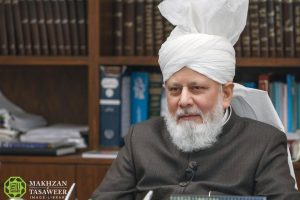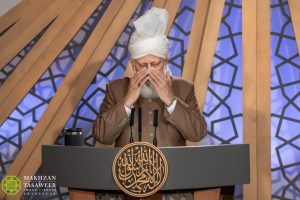
An early masterwork by Hazrat Mirza Bashiruddin Ahmad (ra), second Caliph and Worldwide Head of the Ahmadiyya Muslim Community from 1914-1965.
Hazrat Mirza Bashiruddin Mahmud Ahmad (ra) was the second Successor of the Promised Messiah (as) and Worldwide Head of the Ahmadiyya Muslim Community. Becoming the Caliph at the young age of 25, he steered the growing community for more than 50 years with his incredible spiritual guidance, deep wisdom, powerful prayers and exceptional administrative acumen.
He was a renowned scholar with a remarkable depth of both religious and secular knowledge. His knowledge was so deep that secular scholars who attacked Islam would inevitably be defeated by his command over both secular and religious subjects.
His scholarly excellence has been preserved in a multi-volume set known as Anwarul’ Ulum amounting to over 200 books, lectures and essays expounding upon a vast array of subjects. An example of his deep wisdom and insight can be seen through his enormous collection of sermons and lectures delivered on topics such as religion, politics, philosophy and contemporary issues.
He delivered his first public speech during the lifetime of the Promised Messiah (as) at the Jalsa Salana [annual convention] of 1906. One can begin to understand the effect and impression this academic and scholarly speech had on its listeners through the words of a prominent companion of the Promised Messiah (as) – Hazrat Qazi Muhammad Zahuruddin Akmal (ra) – who was a poet and had great command over language, who stated:
‘Mahmud, the brightest star and crown jewel of prophethood – may God the Benevolent protect him – stood up to deliver an address on the topic of shirk [associating partners with God]. I paid particular attention to his speech. How am I to express it in words? It was an ocean of eloquence, flowing with great force. Undoubtedly, to have such sound thoughts at such a young age is no less than a miracle. In my opinion, this also is a sign of the Promised Messiah’s (as) truthfulness. This makes evident the grand status and beauty of the moral training he received under the guidance of the Promised Messiah (as). He spoke on matters of spiritual excellences in an extraordinary manner.’[1]
[1] Al Hakam, 10 January 1907, Swaaneh Fazle Umar, Vol 1, 121-122.




Add Comment